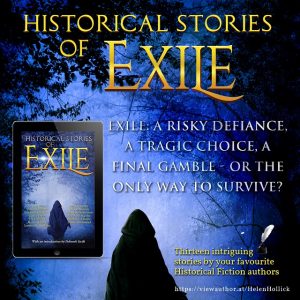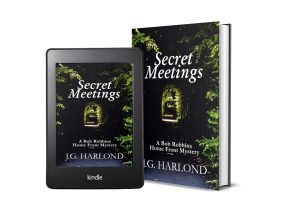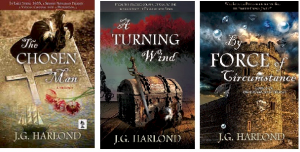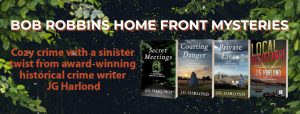Exile – the only way to surive
There is an excellent new addition to Alison Morton’s fascinating series Roma Nova, which tells the story of three very different people forced into exile by events in 4th Century Rome.

As I was reading, I became aware through small details that Alison Morton probably knows everything there is to know about 4th Century A.D. Rome and Romans. This knowledge deepens the story a great deal because what happens to the three main protagonists is a result of contemporary circumstances. Circumstances that resonate in our 21st Century. It is surprising, and not a little disquieting, how much our lives have not changed. Religious intolerance, gender issues, family ties and tensions, they are all here, plus the sad need to find a new place to live, and the difficulties and dangers involved in getting there.
I became invested in the main characters and found myself thinking about them between readings: Lucius Apulius, an ex-tribune, Galla Apulia, his eldest daughter, and Maelia Mitela, widow of a man labelled as a pagan traitor for holding on to belief in the ancient gods; each struggle with personal traumas along with the difficulties of a society at a critical point of change. Morton develops her characters in such a way that one can see why they make certain choices, and how they change during the course of the story.
Details of everyday life such as food and clothing, household management and social expectations enrich the story. Action scenes, where the outcome is never obvious, also kept me turning pages. Quality reading for Roman history buffs and hist-fic fans alike. © J.G. Harlond

Buying links: Amazon: https://mybook.to/EXSILIUM
Other retailers: https://books2read.com/EXSILIUM
About the author:
Alison Morton writes award-winning thrillers featuring tough but compassionate heroines. Her ten-book Roma Nova series is set in an imaginary European country where a remnant of the Roman Empire has survived into the 21st century and is ruled by women who face conspiracy, revolution and heartache but use a sharp line in dialogue. The latest, EXSILIUM, plunges us back to the late 4th century, to the very foundation of Roma Nova.
She blends her fascination for Ancient Rome with six years’ military service and a life of reading crime, historical and thriller fiction. On the way, she collected a BA in modern languages and an MA in history. Alison now lives in Poitou in France, the home of Mélisende, the heroine of her two contemporary thrillers, Double Identity and Double Pursuit.
Social media links
Connect with Alison on her thriller site: https://alison-morton.com
Facebook author page: https://www.facebook.com/AlisonMortonAuthor
X/Twitter: https://twitter.com/alison_morton @alison_morton
Alison’s writing blog: https://alisonmortonauthor.com
Instagram: https://www.instagram.com/alisonmortonauthor/
Goodreads: https://www.goodreads.com/author/show/5783095.Alison_Morton
Threads: https://www.threads.net/@alisonmortonauthor
Alison’s Amazon page: https://Author.to/AlisonMortonAmazon
Newsletter sign-up: https://www.alison-morton.com/newsletter/

 Before coming to Spain, I was living on the Ligurian coast of Italy – hence Ludo da Portovenere (the charismatic rogue of The Chosen Man Trilogy). The Genoese coastline creeps into Ludo’s narrative when, as an involuntary exile, he reminisces about his childhood.
Before coming to Spain, I was living on the Ligurian coast of Italy – hence Ludo da Portovenere (the charismatic rogue of The Chosen Man Trilogy). The Genoese coastline creeps into Ludo’s narrative when, as an involuntary exile, he reminisces about his childhood.
 You can read about how my wicked hero Ludo da Portovenere creates mayhem in 17th Century Europe in three novels starting with The Chosen Man.
You can read about how my wicked hero Ludo da Portovenere creates mayhem in 17th Century Europe in three novels starting with The Chosen Man.  The Empress Emerald is available on:
The Empress Emerald is available on: 
 While researching events in Britain during 1944, I came across a short comment made by someone on a history blog about how Churchill and Eisenhower met for an ultra-secret meeting at a private home on the east coast of Scotland in the month prior to D-Day.
While researching events in Britain during 1944, I came across a short comment made by someone on a history blog about how Churchill and Eisenhower met for an ultra-secret meeting at a private home on the east coast of Scotland in the month prior to D-Day.

